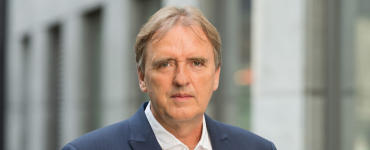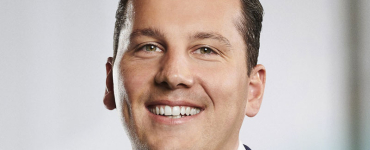Under the title “Smart Office, AI & Co. – The Brave New World of Work”, the eco New Work and IoT Competence Groups will be hosting a joint event at Hewlett Packard Enterprise in Böblingen, Germany on 12 September. We will discuss how the understanding of work has changed and which digital and innovative concepts are required to address new developments. In the run-up to the event, we conducted an interview with our speaker Marc Hölscher, IT architect at netgo, about the challenges and trends of hybrid work in practice.
What are the key questions and challenges that companies face in the context of hybrid work environments?
Marc Hölscher: The hybrid work environment is a challenge for many companies, who need to adapt and react flexibly. Typical questions include:
How can collaboration and communication between in-office employees and remote employees be improved? For hybrid meetings, for instance, solutions must be created that take into account and integrate all employees equally, regardless of whether they are participating at a remote location or in the meeting room. However, the equipment in the meeting room must also be appropriate for this. We call this “Meet & Work”.
How can the corporate culture and identification with the employer be strengthened? Specifically, personal interaction is still needed, but it can no longer take place randomly “in the corridor”. Regularly organised meetings, but also technical solutions for information exchange or “finding appointments on site” are required. Topics such as a centralised intranet, social media and chat have now become essential.
How can the legal, technical and organisational framework conditions for hybrid work be created and maintained? This all depends on what challenges a company faces. If necessary, we analyse both the technical situation (netgo) and the legal requirements (sila consulting) and provide recommendations for implementing modern working methods.
From another angle: What are the prerequisites for successfully implementing hybrid work in practice?
Marc Hölscher: There is no simple answer to this question, as the prerequisites for hybrid working can vary depending on the industry, company, team and individual preferences. However, it is possible to identify some general factors that are important for the success of hybrid work, namely:
- A clear strategy and vision that defines and communicates the company’s goals, values and expectations in relation to hybrid work.
- An effective digital infrastructure that enables access to the necessary resources, tools and platforms for collaboration and information exchange while ensuring security and data protection.
- A continuous learning and innovation culture that encourages and empowers employees to adapt to changes, develop new skills and find creative solutions.
- An inclusive and diverse work culture that recognises and promotes the diversity of employees and their needs, while fostering an open respectful interaction with one another.
These factors are not only relevant for hybrid work, but also for the future viability and competitiveness of companies in general. It is therefore important that companies view hybrid work not as a short-term adjustment due to the pandemic, but as a long-term opportunity to transform their way of working.
Looking further ahead, what will the working environment be like in 2030?
Marc Hölscher: That’s an exciting question that touches on many aspects. Some trends that are already emerging include:
- Greater networking and collaboration across spatial and organisational boundaries, which promotes the exchange of knowledge, ideas and innovations.
- A higher degree of flexibility and autonomy for employees, allowing them to adjust their working hours, locations and working methods to their individual needs and preferences.
- Growing digitalisation and automation of processes and tasks, increasing efficiency, quality and security, while also creating new demands on employees’ skills and qualifications.
- A stronger focus on sustainability and social responsibility, which takes into account both the ecological and social impact of work and contributes to positive change.
To successfully shape these trends, it requires a clear vision, open communication, and an inclusive culture that involves all stakeholders in the change process and gives them room for experimentation, learning, and feedback. Only in this way can hybrid work become a win-win situation for both companies and employees.
Thank you very much for the interview, Mr. Hölscher!




